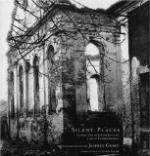For some moments he enjoyed this feeling of well-being, then a disturbing element insinuated itself. At first it was merely an uneasiness, which he could not place, a vague and nebulous irritation, a single crumpled rose-leaf. Then it grew to the proportions of a menace which banked his horizon with thunder, though the sun still shone overhead. Finally it became a terror, clutching him at the throat. He seemed to feel the need of identifying it. By an effort he recognised it as a lack. Something was missing without which there was for him no success, no happiness, no well-being, no strength, no existence. That something he must find. In the search his soul descended again to the region of dread, the regions of phantasmagoria. The earth heaved and rocked and swam in a sea of cold and glaring light. Strange creatures, momentarily changing shape and size, glided monstrous across the middle distance. The mock suns danced in the heavens.
Twice he stopped short and listened. In his brain the lack was defining itself as the lack of a sound. It was something he had always been used to. Now it had been taken away. The world was silent in its deprivation, and the silence stifled him. It had been something so usual that he had never noticed it; its absence called it to his attention for the first time. So far in the circle his mind ran; then swung back. He beat his forehead. Great as were the sufferings of his body, they were as nothing compared with these unreal torturings of his maddened brain.
For the third time he stopped, his head sidewise in the attitude of listening. At once easily, without effort, he knew. All these months behind him had sounded the crunch of snow-shoes. All these months about him, wrapping him so softly that he had never been conscious of it, had been the worship of a great devotion. Now they were taken away, he missed them. His spirit, great to withstand the hardships of the body, strong to deny itself, so that even at the last he had resisted the temptation of hunger and divided with his dog, in its weakened condition could not stand the exposure to the loneliness, to the barren winds of a peopleless world.
A long minute he stood, listening, demanding against all reason to hear the crunch, crunch, crunch that should tell him he was not alone. Then, without a glance at the Trail he had followed so long, he turned back.
CHAPTER TWENTY-NINE
The girl was lying face down as he had left her. Already the windrow of the snow was beginning to form, like the curve of a wave about to break over her prostrate body. He sat down beside her, and gathered her into his arms, throwing the thick three-point blanket with its warm lining over the bent forms of both. At once it was as though he had always been there, his back to the unceasing winds, a permanence in the wilderness. The struggles of the long, long trail withdrew swiftly into the past—they had never been. And through the unreality of this feeling shot a single illuminating shaft of truth: never would he find in himself the power to take the trail again. The bubbling fever-height of his energies suddenly drained away.




